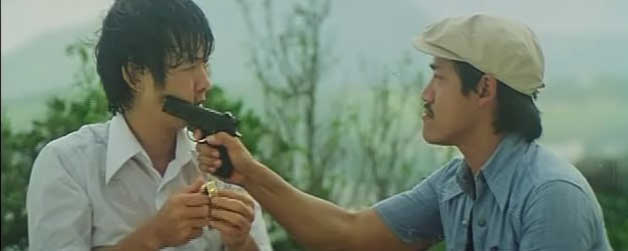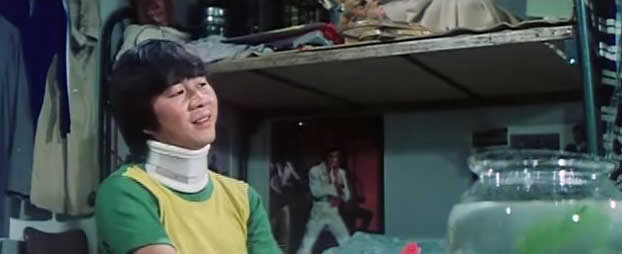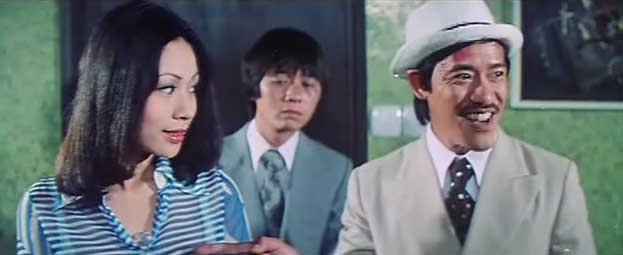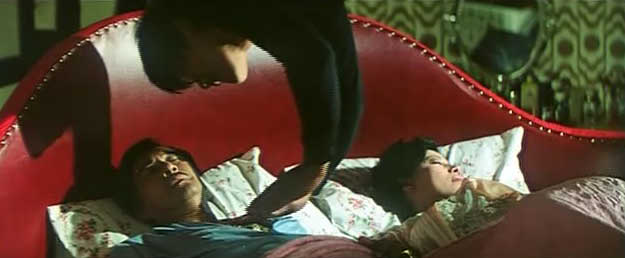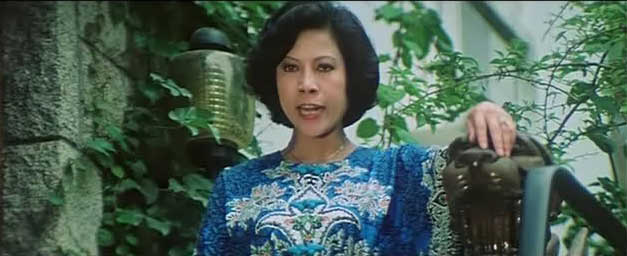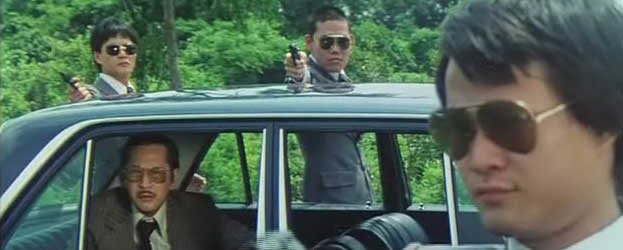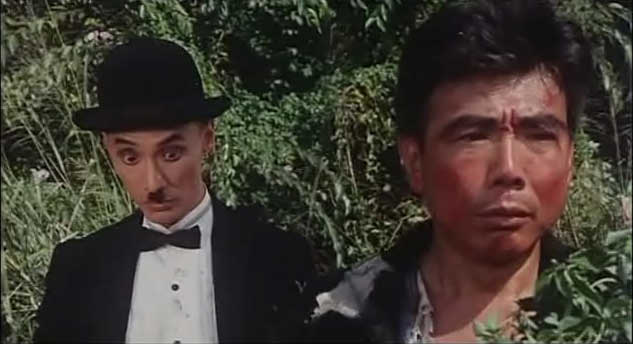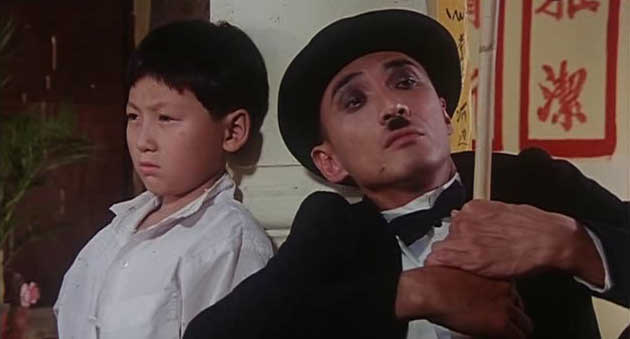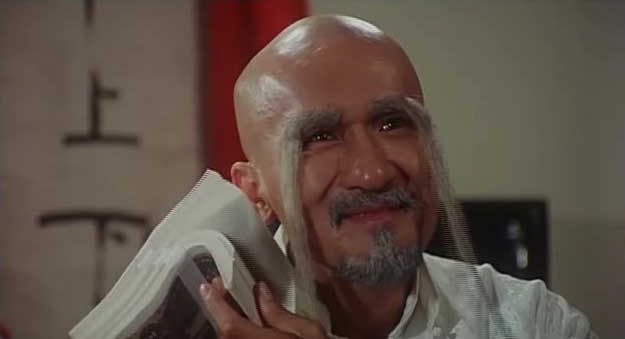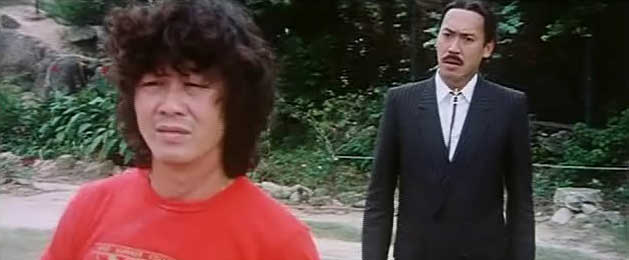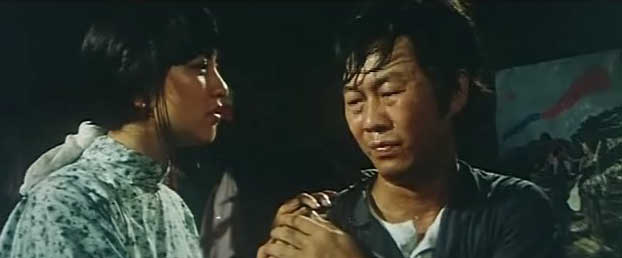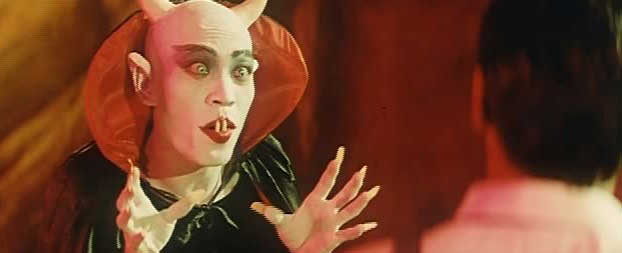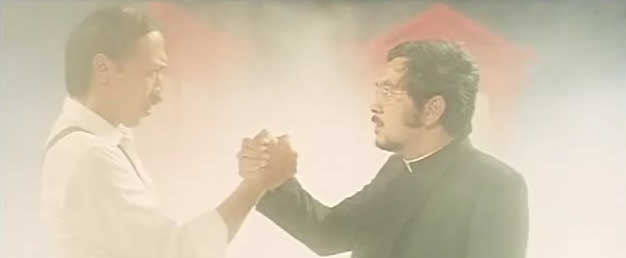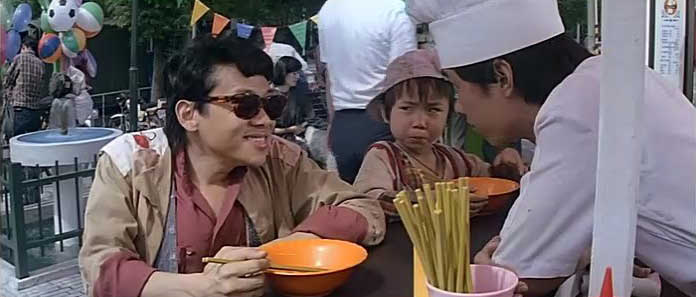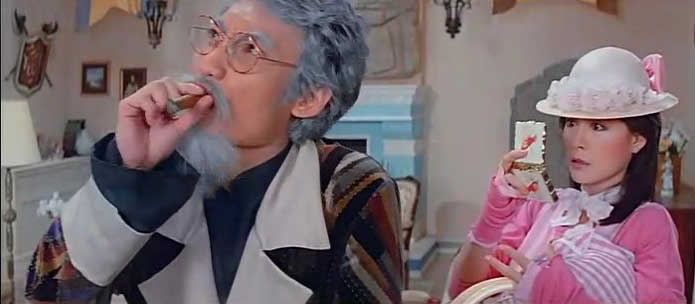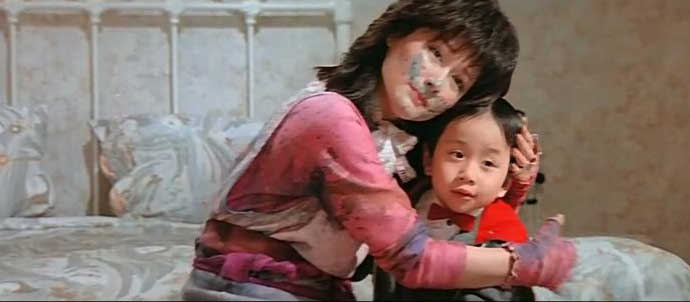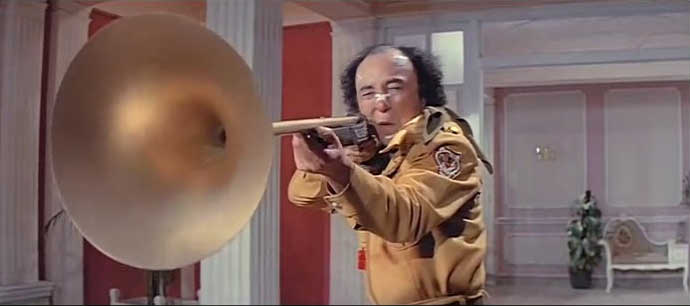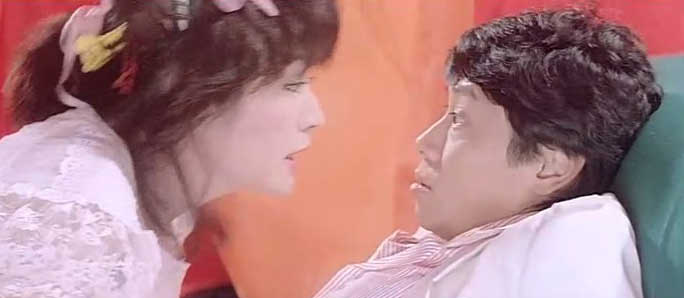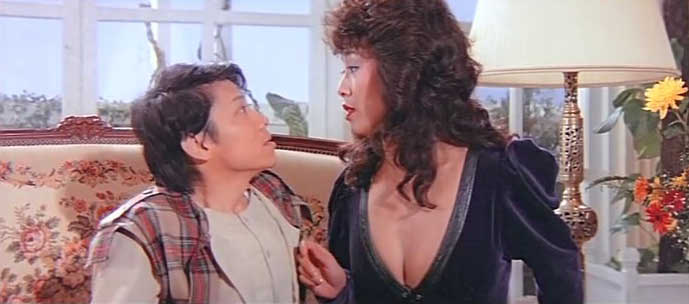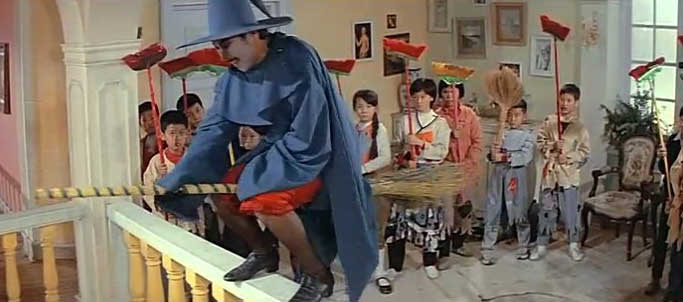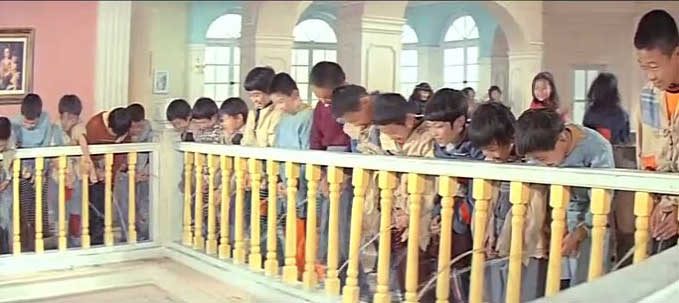John Woo Comedies
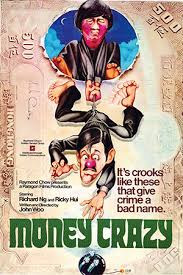
Money Crazy (1977) - 7.0
AKA - The Pilferer's Progress
Like a lot of John Woo Heroic Bloodshed fans, I never bothered with his films
before he hit it big with A Better Tomorrow in 1986 - but that wasn't a virgin
birth. Woo had directed fifteen films before that career changing film. Woo
grew up very poor but loving movies - many Western ones in particular. He
began as a script writer for Cathay near the end of their demise and then
jumped over to Shaw Brothers as an assistant director on some seven films
where he grew to admire Chang Cheh and his masculine action films. When he
went out on his own to direct it wasn't for the Shaw Brothers but for the
new kid on the block, Golden Harvest.
Among these fifteen early films he delved into a few genres - martial arts,
modern action, even a Chinese Opera but over half of them were comedies -
not a genre that people today associate with Woo. These were made in the
late 1970's/early 80's. I am not sure how successful these films were but
I expect they did ok as Golden Harvest and then Cinema City produced a few
of them. Ricky Hui was to star in four of the comedies. Ricky Hui is of course
one of the three Hui Brothers who had so much influence with their comedies
in bringing back Cantonese into film language. Their rapid fire comedy and
dialogue was made for Cantonese. Ricky was always the low man in the threesome
- generally playing not very bright characters who ended up with a pie in
his face while Sam was the handsome debonair one and Michael the crafty slightly
crooked one. Here Ricky is paired up with Richard Ng - near the beginning
of his career - and they are terrific together - but Ricky still plays the
slow witted one.
Money Crazy was also written by Woo and it is quite funny - he somehow manages
to get the mood of the Hui Brothers films (though they only had two at this
point) and the action of the Aces Go Places films - but those were in fact
five years in the future. By the mood of the Hui Brothers I mean their depiction
of the Hong Kong every man working class character trying to make a go of
it and using their wits and a certain amount of deception to get there. This
film even has Sam Hui singing the theme song (and at one point a song of
his comes on the radio and the listener tosses it in the water complaining
what a lousy song it is).
So this feels very much influenced by the Hui Brothers comedy but it was
for me surprisingly amusing - some great bits, wonderful interplay between
Hui and Ng, some solid if comedic action scenes choreographed by Fung Hak-on
and just a sense of fun and anything goes. Maybe Woo should have stuck to
comedy! The sight gags, the insults, the pratfalls, the physical jokes come
at you like a hail of bullets - just one after another. Some land, some don't.
But overall it works and one scene in which Ng is being lowered on a rope
by Hui to steal diamonds from a sleeping man ala Mission Impossible but he
begins to sweat and pulls out a small umbrella to catch the droplets is pure
Buster Keaton.
Hui thinks his way to riches is by working for rich men and he becomes their
bodyguard, their chauffer, their toady, their cigar lighter, their bootlicker
as he calls himself but he always screws up and is unemployed again. He finds
one more job by hiring his friends to pretend to mug Rich Chan (Cheung Ying)
and Hui fights them off to get a job as bodyguard. Ng is a detective conman
always looking for a fast buck and a sucker. One of them is Chan. So Chan
then hires Ng to deliver some diamonds to an address and Hui follows him
- but Chan is actually sending Ng to be killed. That doesn't work and Ng
and Hui team up to try and steal the diamonds. And hijinks follow. This isn't
exactly brain food, but it went down fine.
In small roles you can see Mars, Billy Chan and Lam Ching-ying as the hitmen,
Lee Hoi-sang as the body builder body guard, Eric Tsang for just a moment
and one of my favorite character actresses - Helena Law Lan as the wife of
Rich Chan.
Laughing Times (1980) 5.0
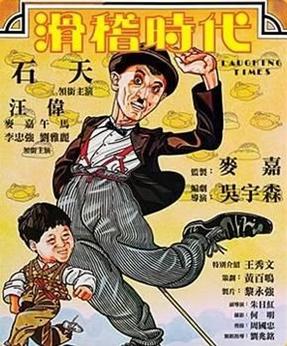
This is another John Woo comedy three years after Money Crazy. In between
Woo had directed two more comedies as best as I can tell as I have never
come across them on DVD and Last Hurrah for Chivalry, a martial arts film.
For this film Woo was to leave Golden Harvest temporarily to direct a film
for the Cinema City film studio. Cinema City had just been formed by Karl
Maka, Dean Shek and Raymond Wong. Tsui Hark and Eric Tsang were soon to join.
Maka and Shek can be found as comical characters in many films - often martial
arts films. Shek was in a load of Shaw films. Both have very distinctive
faces that you can't miss - Maka a baldie and Shek with his narrow long face
and his beady eyes. Raymond Wong with his baby face had also been in a few
comedies. The three of them wanted to make comedies that were more up to
date and with Western influences. Later on they expanded and helped fund
some Tsui Hark films. Most people agree that among their comedies that the
Aces Go Places were the best. So as one of their first films they hired Woo
to direct a film of his own script.
And what a very strange film it is. As I mentioned in the previous review
on Money Crazy, Woo as he was growing up loved Western films. That is more
than evident in this one as he goes back to the comedies of the Silent Era
for inspiration. No, it is not in black and white and it is not silent though
it could have been - but he basically puts Charlie Chaplin into a Keystone
comedy film. It is manic, it is frantic, it is often speeded up and it is
a constant stream of pratfalls (literally hundreds of them) and visual gags.
He can't seem to make up his mind which Chaplin film is his favorite so he
takes bits and pieces from The Kid and from City Lights. Then there are the
inept cops who literally fall over their feet and the even more inept villains.
Some of the routines and jokes are honestly quite clever on their own but
they never stop. Woo had so much material I guess and wanted to stuff it
all into this one film so that a minute never goes by without someone falling
down - usually for no reason other than to fall down. It is too much. The
film should be seen in fifteen minute increments which was the length of
most of the shorts he is emulating (and which I was forced to do because
of back issues).
Dean Shek does his best Chaplin impersonation with a small moustache, a cane,
a derby and the oversized shoes. He is also a tramp as the film is in its
way a social comedy delving down into the underclass. The period is hard
to discern - but I would guess the 1950s. Shek spends his days trying to
find food to eat whether it is a throw away or at the end of someone else's
fork. In one rather sad scene he hires himself out to be the face in the
hole for people to throw cake at - of which he gobbles up. There is the poor
female Chinese opera singer (Wong Sau-man) who has a cruel father that he
gets a crush on and an orphan boy that he protects. There are also the many
cops trying to arrest him and the boy and there are various scenes of crazy
chases. The villain comes in the form of Karl Maka with his bald head and
eyebrows down to his shoulder. In one scene he is dancing the tango with
his girl and picks up a live goldfish and swallows it with only the fins
hanging out of his mouth as he romances her. When not eating goldfish, he
is a trafficker of women and boys and captures both the girl and the boy.
Shek along with the neighborhood drunk (Wu Ma) fight to get them back.
Shek, Maka and Wu Ma are well trained in the skills of martial arts and if
you watch the final fight carefully it is really a remarkable display of
physical skills as they bounce off of walls, slide on the floor and just
whack each other. It goes on for about ten minutes of constantly changing
stunts and fight styles. If you take the comedy out of it of which there
is a lot, this is a well choreographed fight scene with amazing timing from
all three. In fact, Shek's physicality through the film is quite amazing
even if there is way too much of it. At one point after getting pounded,
he becomes a mechanical wind up toy and his movements are brilliant as he
fights on. Still at the end of the day it is perhaps an interesting experiment
- I can't think of any other HK film like it - but someone at Cinema City
should have told Woo, not so many pratfalls!
To Hell With the Devil (1982) - 4.0
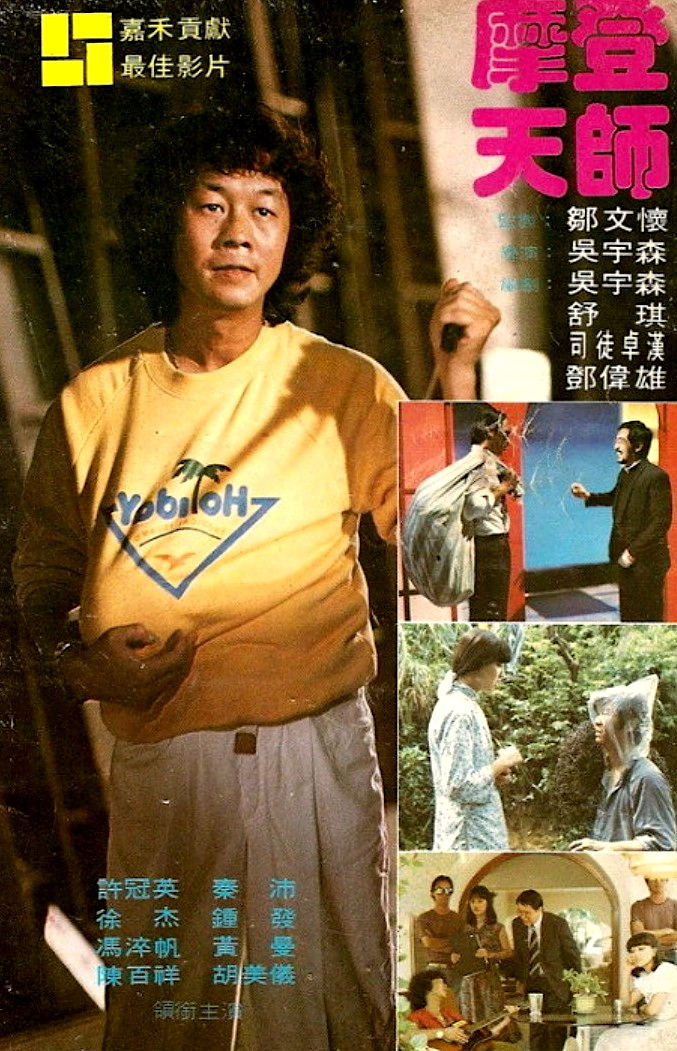
What a car crash of a film this one is. This is John Woo's fourth comedy
in a row and it all begins to fall apart like the make-up on an ancient Dowager
in a flood of tears. He is back at Golden Harvest for this one. Woo was brought
up as a Christian which explains some of the imagery in his later films but
that is nowhere more evident than in this film where he has a battle between
good and evil literally represented by the devil and a wastrel and wasted
angel. It is just painful to sit through with tedious slapstick and pratfalls
and a plot that meanders around like a lost child in a super market. You
just want it to end. All the clever wit in his earlier comedies is replaced
by routines weighed down with cement blocks. Again you see Woo reaching into
Western films for inspiration and then furbishing it with Hong Kong silliness.
It is a bad match. Like ketchup on turkey.
Bruce Lee (Ricky Hui again) is a failed composer - not the martial artist
as he wittily says - and a failure in love. A perfect target for the fanged
slimy devil to send an agent Flit (Stanley Fung) to make that eternal bargain
- success for your soul. At the same time a Christian priest (Paul Chun Pui)
has just been kicked out of the Church for drunken behavior and pulls the
chain on a toilet and brings down the water storage device on his head and
dies. Up to a feathery cloudy heaven he goes by climbing steps from the wait
station where the dead seem to have little to do but play. God appears to
him and says go back, do some good and I will see you again some day.
And they both fight for the soul of this sad sack hangdog loser who can't
do anything right. The girl he loves (Chui Git) really isn't interested because
he has no money and no future. We can hardly blame her. At least get that
hedgerow on your head cut. So Flit's offer seems more than tempting and Bruce
signs it and becomes a famous pop star - but that still doesn't get him his
girl, then he gets enormous riches and that doesn't get him the girl and
then he becomes extremely poor and that doesn't get him love. I think we
are seeing a pattern here. And the film ends in this awful endless human
video game where the Reverend and Flit fight it out with laser beams from
their eyes. I finally applauded when I saw The End cross the screen - I wondered
if I just lost a bit of my soul.
Run Tiger Run (1984) - 5.0
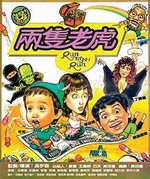
I have to assume that this John Woo Cinema City comedy was made for children.
If not and it was made for adults, yikes. It has been reported that John
Woo was becoming very depressed about this time because his career wasn't
going where he wanted it to and his latest films had crashed and burned at
the box office. After this came The Time You Need a Friend which completely
bombed and was also made for Cinema City and then he made the action film,
Heroes Shed No Tears, which did mediocre business for Golden Harvest. You
had to wonder where he would go next. Now perhaps the one good thing to come
out of Run Tiger Run is that Woo worked with Tsui Hark for the first time.
And it was Tsui Hark who gave Woo his rebirth. He must have seen something
that I don't see in his films but Tsui under his production house, Film Workshop,
which was under Cinema City gave Woo a shot when Woo came to him with an
idea of a remake for an older Cantonese film. And A Better Tomorrow was born.
I would imagine that children would have enjoyed this film - lots of nutty
comedy and nuttier action, total chaos, gadgets up the wazoo, visually quite
eccentric and absolutely no sense really. This would have made a decent Disney
film though chances are Disney would never have had a scene with ten kids
peeing on adults down below them. Golden Showers just wasn't Disney's thing.
There were a few scenes I found myself chuckling at and then feeling deeply
shamed for doing so.
Teddy Shit (seriously) is played by Teddy Robin Kwan who back in the 1980's
and early 90's was a very well-known name. He did about everything in film
- directed some terrific films (All the Wrong Spies, The Legend of Wisely
and Shanghai Shanghai), produced loads of films, sang on the soundtrack for
many films and was in his own right a very popular pop singer and he acted
in a bunch of comedies. He was even the leading man in some of them - and
that is even though he was very short and kind of dwarfish. The thing is
that he pretty much always irritates me with his performances - and does
so again here.
Teddy is a homeless man and takes care of a young boy Benny who is played
by Bin Bin who was a child star for a couple of years before he faded away.
On the other side of the tracks is an old wealthy man played by Tsui Hark
in gray whiskers and hair who is taking care of his grandchild Little Steak,
again played by Bin Bin. The kid has everything but parents - and a new nanny
(Violet Pan) is brought on who survives the frontal attack of Little Steak's
toys. Then the old man dies and leaves everything to his grandson - and his
deeply flawed son realizes that he has to kill his nephew to inherit it all.
Benny is mistaken for Little Steak by the villains and brought to the house
with Teddy and the shenanigans begin and never stop. They even bring the
Black Widow (Ding Xiao-hui) aboard to kill Teddy with her poisonous kiss
and heaving breasts.
It is totally nonsensical and once it gets going it never stops. Some clever
sight gags, stunts and insanity. The DVD that I have that I bought in HK
is oddly dubbed into English. I wonder who and why someone went to the trouble.
On the plus side I didn't have to hear Teddy in Cantonese.


